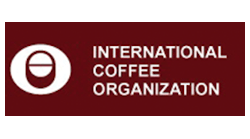Coffee prices strengthened significantly over the course of March 2016, despite faltering slightly towards the end of the month, according to the International Coffee Organization (ICO). Although somewhat attributable to market fundamentals, coffee was mostly swept up in a broader commodities cycle, with similar movements observed in other agricultural markets. Exports have maintained their high volumes, with total shipments so far this coffee year up 2% compared to 2014/15. However, speculation over potential supply concerns, particularly in Robusta, is mounting.
The monthly average of the ICO composite indicator price jumped by 5.4% to 117.83 US cents/lb in March, its highest level since October 2015. Nevertheless, this is still well below its level of March last year when it averaged 127.04 cents. Daily prices increased from a low of 109.37 cents at the beginning of the month to a high of 124.95 cents by the 22nd, before ending the month down on 119.93 cents.
In terms of the group indicators, significant increases were observed in the monthly averages of the three Arabica groups, with Colombian Milds, Other Milds and Brazilian Naturals up by 5.9%, 6.6% and 6.7% respectively. Robustas recorded a more modest increase of 2.1% to 75.60, although this is the first monthly increase since October and the highest level in 2016. Furthermore, the decline towards the end of the month was much less pronounced in Robustas, perhaps supported by concerns over future supply. As a result, the arbitrage between Arabica and Robusta, as observed on the New York and London futures markets, increased to 60.92 cents, its widest gap in over a year.
otal exports in February 2016 increased by 1.7% to 9.2 million bags, with a drop in Robusta exports of 8.9% more than compensated by an 8.1% increase in Arabicas. This brings the total exports for the first five months of coffee year 2015/16 (October to February) to 45.2 million bags, up 2% on the same period last year. Brazil, in particular, has maintained a heavy flow of shipments (up 1.7% on last year), with increases also registered in Colombia (+10.3%), India (+15.3%) and Ethiopia (+28.5%). Vietnam and Indonesia, on the other hand, are both estimated lower by 4% and 34.9% respectively.
Looking ahead, while production in Colombia reached 7.3 million bags in the first half of 2015/16, there are increasing concerns that dryness caused by El Niño could reduce output in the second half of the year, with reports emerging that this could increase Colombia’s susceptibility to damage from coffee berry borer. Drought is also affecting supply expectations in Vietnam and Espirito Santo in Brazil, which could lend support to Robusta prices in the near future.
However, it should be kept in mind that the coffee market does not operate in isolation. Over the last three months, it has been increasingly noticeable that movements in coffee prices are being mirrored in other soft commodities (for example sugar and cocoa), as can be seen below in Graph 5. Therefore, while some of this recent rally could be attributed to increasing speculation over supply concerns, particularly in Colombia and some Robusta-producing regions, it is also likely that coffee has been caught up in a broader commodity cycle.






